Self-Advocacy as Shame Mitigation
A mental health month conversation with Crystal Anderson
Escrito por Made of Millions Team
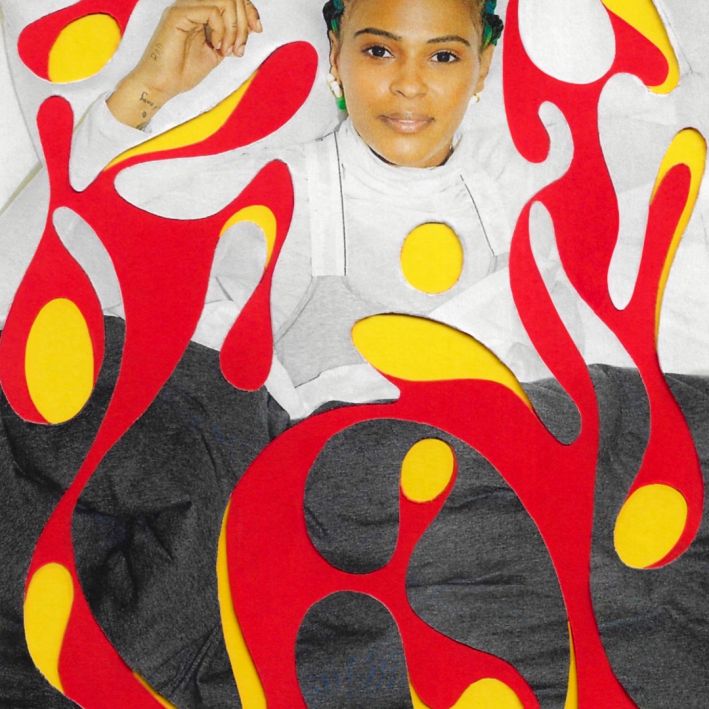
01 Crystal Anderson is an advocate, fashion enthusiast, cofounder of A Very Good Job, and Made of Millions board advisor. Over the years, she's been open about the ups and downs of her mental health, in particular her experiences with OCD and depression, and how her life as a Black queer woman intersects with her journey.
02 For our Shame Shouldn't Be a Symptom campaign, Crystal sat down with our team for a conversation about shame, taboo thoughts, and the power of self-advocacy.
03 All collage artwork from our campaign was created in collaboration with Ian Woods. Find him on Instagram at @ian___woods.
Crystal Anderson is a vibrant force online and off. Outside of her career as the cofounder of A Very Good Job, she is a fashion enthusiast known for sharing bold, creative looks with her following and empowering others to do what makes them feel good — at work, at home, in life.
This empowerment includes raw honesty about the things that sometimes keep her from feeling good. In particular, OCD and depression. Following an in treatment program at the age of 33, Crystal started sharing her recovery journey online. She opened up about having taboo intrusive thoughts, and the debilitating anxiety and shame that comes with them. She began taking her medication on camera for her thousands of followers to see.
And it's made a difference. Not only is she humanizing the experience of anxiety and depression, she's diversifying the narratives we see about them within the mental health space — a community that's hugely lacking in intersectional storytelling and diverse representation.
For mental health awareness month, we sat down with Crystal for a candid conversation about shame, intrusive thoughts, and the importance of self-advocacy as a Black queer woman.
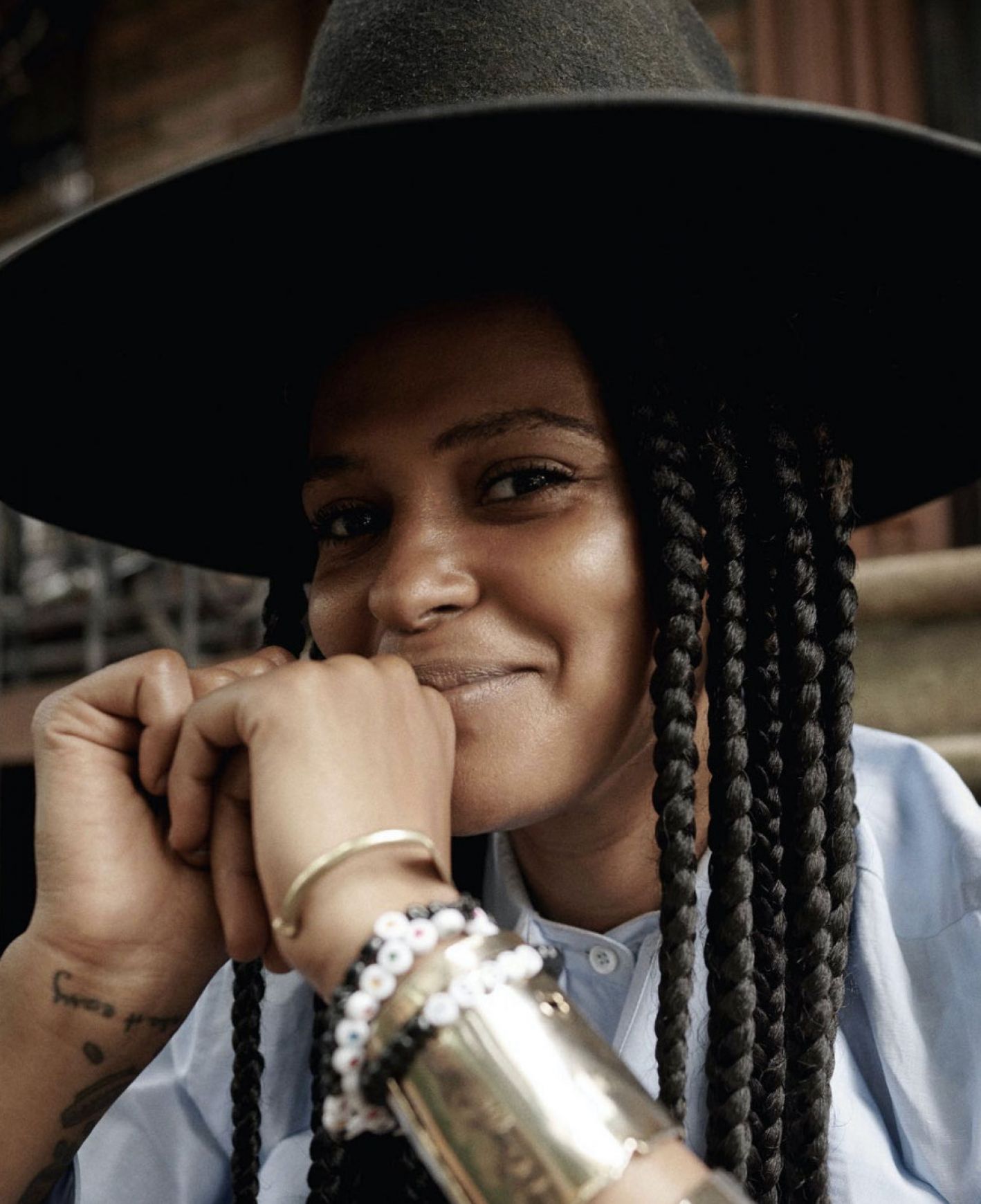
Hey Crystal, thanks so much for chatting with us. We’re familiar with some of your story from social media and past collaborations, but would love to learn more about how you went from experiencing OCD related intrusive thoughts, to seeking help for them. Can you tell us about that journey?
Yeah absolutely. So my official ‘breaking point’ with OCD was right before my 33rd birthday. I’d gone down to my parents house in Virginia because I hadn't been feeling great and it was supposed to be a chance to get away.
When I got there, I saw one of my mom's bathrobes. It had a waist tie on it, and I focused on that tie for probably the first three days that I was there. Thinking things like: I'm going to hang myself over the banister of my parents house. They're going to find me and it's going to be awful.
I went through all of the emotions of what my mother would think and how my dad would cut me down from the banister. Then I was like, okay this is enough. I have to do something about this. That was the moment that I knew I couldn’t battle these thoughts on my own and tried to find a therapist. It was the most selfish and selfless decision I've ever made.
I was just so exhausted. The intake doctor at the hospital who diagnosed me could have said, ‘We have to split open your head in two and that's how you’ll live the rest of your life’ and I would have been fine with that. I was so drained, mentally and physically, from being afraid and not understanding what was going on. I didn't care what the answer was, I just needed an answer. Being able to get a diagnosis, that completely changed the trajectory of my life.
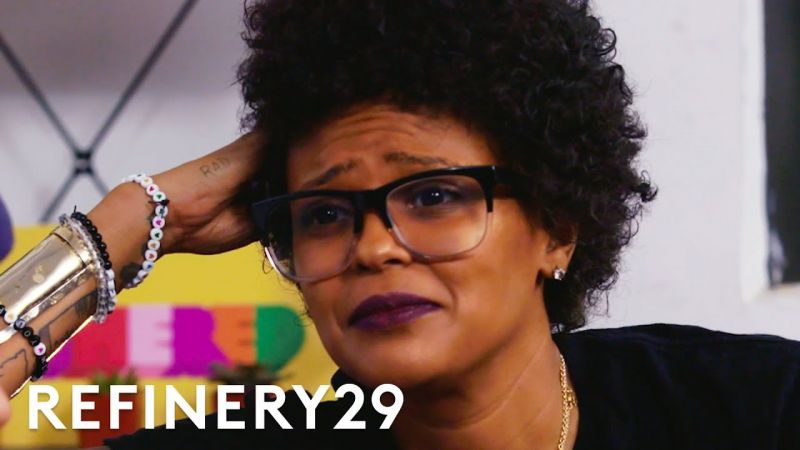
Kiesh & Crystal Get Vulnerable About Their Relationship
On this episode of Dear Black Love, we sit down with Kiesh and Crystal to learn more about their love story.
I think a lot of OCD sufferers can resonate with that feeling of extreme exhaustion. You try your hardest to keep it all together, but then you reach a point where it’s just not sustainable anymore.
Asking for help can be really intimidating, though. Growing up, was mental health something that was talked about openly at home?
Yeah, we have a long line of mental health diagnoses on both sides of my family. My dad is Italian from Long Island, and my mom is a black woman from South Carolina. Mental health was always something we talked about.
My mom has seen a therapist for as long as I can remember, so it was always very normalized. To this day, my mom will call me and she'll immediately know that I'm having a bad moment. She’ll ask if I’ve taken my medication or how my mental health is doing. So to be able to have that is a blessing I don't take for granted, and yet another reason I feel so responsible to be a face out in the world for people who don't have that.
I think culturally, a lot of people think these are things you can pray or smile away, and it's just not the case. I've been very fortunate in my home to be able to speak freely both to my siblings and my parents.
That's amazing. Having a support system is game changing, especially when you're living with really taboo symptoms. I'm curious about the process you went through to seek treatment. Did you have hesitations? Were there any roadblocks?
Well New York is notoriously difficult for getting a therapist on the same day. Everyone's like, “Oh, it's a three-week wait!” and I'm like, I don't have three weeks. I don't know that I have three hours.
Plus I was incredibly reluctant to get help, mainly because of work. I knew for certain that if I decided to admit myself to a facility, they would want to keep me long term. I knew that it wasn't going to be an in-and-out sort of thing. I kept thinking, can I afford to take four weeks away from work? Is mental health considered a disease the same way as when I had surgery a couple years ago and was able to take eight weeks off? How does this all work?
Did you fear being judged by colleagues?
Absolutely. I would zip up the Crystal costume every day when I showed up to work. A lot of my coworkers weren't fully aware of what was happening. I did lose quite a bit of weight during that time, so they knew something was up.
For the most part, it was less about the judgment but more so about the ability to do the work. If I take off for four weeks, are they going to want me when I come back? Because they're going to know that I was in a quote, “insane asylum”. These are words that I heard people use in the 2000s. People still say shrink and loony bin and crazy house. So all of those things started to play in my mind when I was thinking about the how's and the whys of seeking treatment for my OCD.
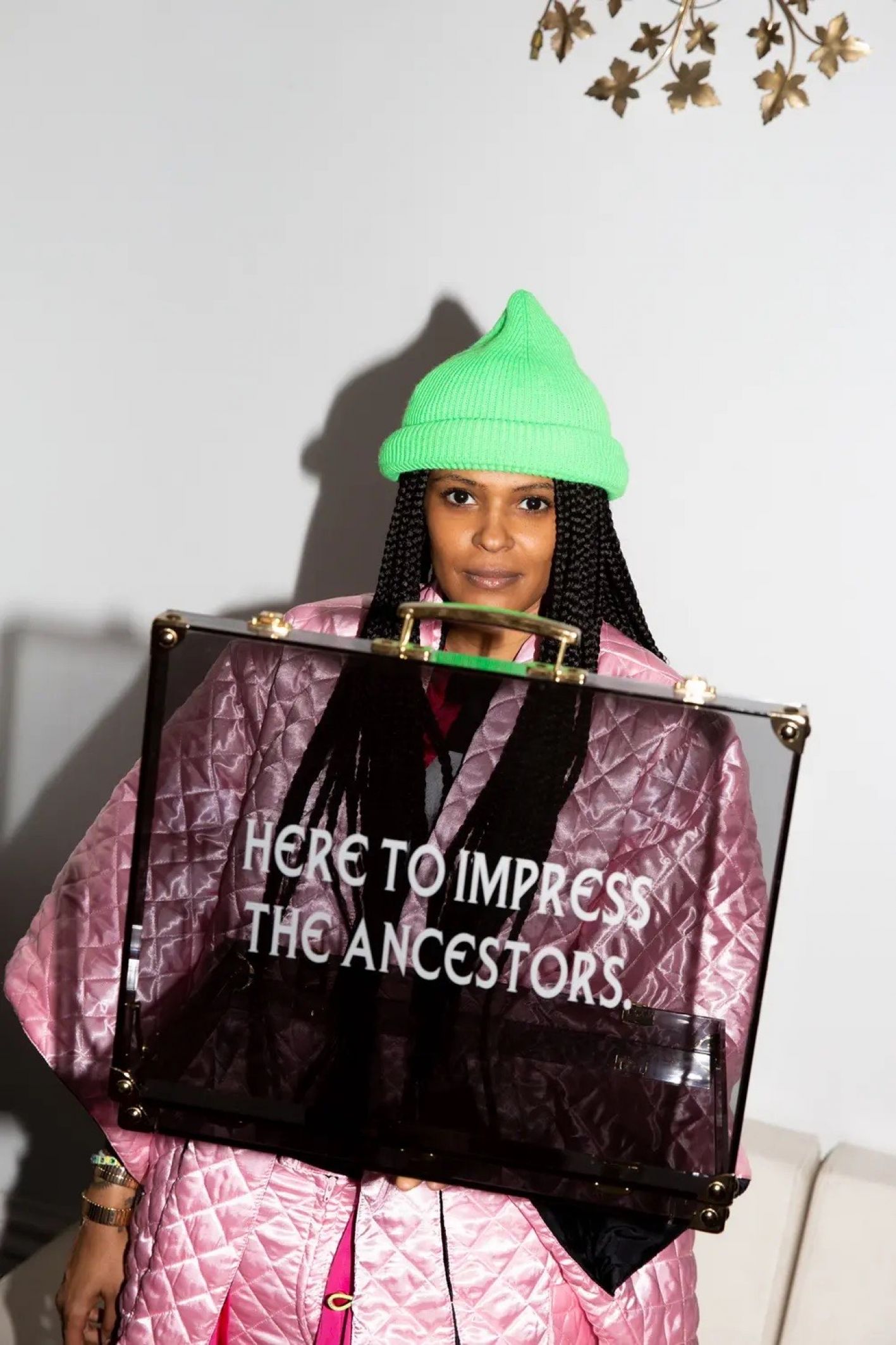
I feel like for so many people, it’s a huge effort to make that first step, and if that first step doesn’t go well, it can be really disheartening. Is there anything you’d say to people who have had bad encounters seeking help?
Finding a therapist is like dating, right? You don't just go to one. I've seen white women, white men, black women, black men, queer people.
My very first therapist outside of treatment, she was all wrong for me. I saw her for almost a year because I thought I was flawed for the way I was experiencing her therapy and her teachings. As opposed to us just not being a good fit, and saying to myself “Okay, you know what? I need to find another therapist.” Which happens. A lot of people don't think about it that way. They try therapy once and are like, “I’ve gone over this huge hurdle. I'm not coming back. Therapy just isn’t for me.” Instead of, “This person isn't for me.”
It's like if you date one awful human, you're not gonna be like, “To hell with this. I'm not trying again.” It is absolutely the same with different types of therapies, therapists, and psychiatrists. At the end of the day, they’re human beings with personalities. I don't vibe with a lot of people in the world, and that doesn’t change when it comes to a therapist or psychiatrist.
Right! Therapists, and all doctors for that matter, aren’t these omnipotent forces. They’re people. They’re flawed, they have preconceived notions. Many of them don’t have lived experiences that match ours, which is hard when you need them to help you heal or better understand something.
So with all those challenges, how does someone navigate finding a therapist who is culturally competent and has the right credentials?
When you’re seeking help, you have so many things to think about. Let's say you're looking for a therapist who just focuses on OCD. A lot of my themes are around thoughts like, “Am I actually gay, or am I straight?” So having a queer affirming therapist has been really important for those themes. It’s a difficult and nuanced balance to find someone who is culturally competent, who understands your life as a Black person or an Indigenous person or a queer person, in addition to being able to understand OCD or any other diagnosis.
It's not an easy, mathematical find. You really have to do an extreme amount of work. You have to research and think about what's most important for you. You need to write out a list and ask: Who am I? Where do I fall into? Where am I looking for in treatment? Is it for my OCD, but I want someone who's Black? What are your most important layers? For me, because my OCD is really dark and can be really violent, that's what comes first.
We hear that a lot within the OCD community. Tons of people have had bad experiences with talk therapists because they ultimately weren’t qualified to treat their condition. You need your clinician to have experience with taboo intrusive thoughts, otherwise they can do a lot of harm.
And on top of that, there’s so much shame surrounding OCD. These thoughts and images can get really graphic, and in turn, feel impossible to share. Have you struggled to open up to therapists in the past about your themes?
Oh, there have been so many times I’ve held things back out of shame. And I say that as a person who understands that they're just thoughts and not things I actually believe.
I've had thoughts around sexual violence that I didn’t tell my therapist. By now I’ve shared most of them, but when they first started to present themselves, I was like, “Oh I cannot say that.”
I was just so ashamed and embarrassed. I knew they were OCD, but they were so dark and violent that I felt like a monster. It took me probably five or six sessions before I was like, “Listen, I have to get something off my chest.”
Not talking about these things starts to compound and weigh on folks. A lot of people who live with OCD think that no one else in the world knows what it's like. It’s just them having these thoughts. Even when considering treatment, it feels like you're the one person a doctor won’t be able to help.
That’s why I try to be open about my OCD. When I do, I get DM’s from people saying, “Thank you so much for talking about this because I've had these thoughts too and I thought it was just me.”
Condiciones relacionadas
That really shows the power of online advocacy. Once you’re far along in your treatment journey, it can be easy to forget those early days of feeling entirely alone. But there are literally millions of people online right now who have yet to stumble on someone talking about OCD and intrusive thoughts honestly. Which is why this stuff matters.
You also post a lot about medication, which is another heavily stigmatized topic. What has your experience with medication related shame been like?
My experience with medication goes back to it being normalized in my household. So this idea of taking meds to help with your symptoms wasn't unfamiliar. I think that's a key reason why I've been so open in talking about it, because I just don't know any other way. It’s never been a shameful thing in my household.
For people who didn’t grow up in that kind of environment, why do you think they are so hesitant to take medication?
A sentiment I hear a lot is, “I want to figure things out on my own first.” And sure, everybody has a different experience, but my opinion around that is... if you need to take them, then take them.
I think a lot of worried people turn to Google, which is where all anxieties go to die a fiery death. [Laughter] You'll be like, “Okay. I've been told that I need to take this medication, and it says here that I'm going to gain 15 pounds and then for three weeks I might be suicidal. Then maybe I’ll see results.”
People run into a myriad of stories on the internet, and it scares them. I think that’s a huge reason folks decide they want nothing to do with medications. A lot of people, myself included, need to stay off the internet when they get trapped in that cycle. When I get a new medication, I read what's in the pamphlet and do NOT WebMD anything.
Oh WebMD is not for people with anxiety disorders. I’ve spent countless hours on there spiraling.
Even though you grew up in a household where medication use was normalized, did these compulsive behaviors like obsessive Googling, delay aspects of your treatment process? Or when meds were recommended did you just go for it?
We all learned in kindergarten, you won't know if you like something until you try it. That’s a belief I live my life by, especially when it comes to medication because I know that I need it to to survive.
Like with the suicidal ideations that I was having, I knew that I had no interest in dying by suicide. But that depression started to drag me down because I wasn't getting the help I needed. I wasn't taking medication, so this really dark cycle started to happen. For me, a lot of that has been mitigated through the use of prescribed medications. I was at such a low point when I reached out for help, that I was really willing to try anything.
And nowadays, I’m happy and willing to be a reference point for people to look and say, “Okay, Crystal takes medicine and she seems to be doing okay.” That's why I am so honest about it. The journey can be a struggle. You have to find the right cocktail. I've tried multiple things in different milligrams until finally landing on something that works for me. But I got there and it keeps me healthy.
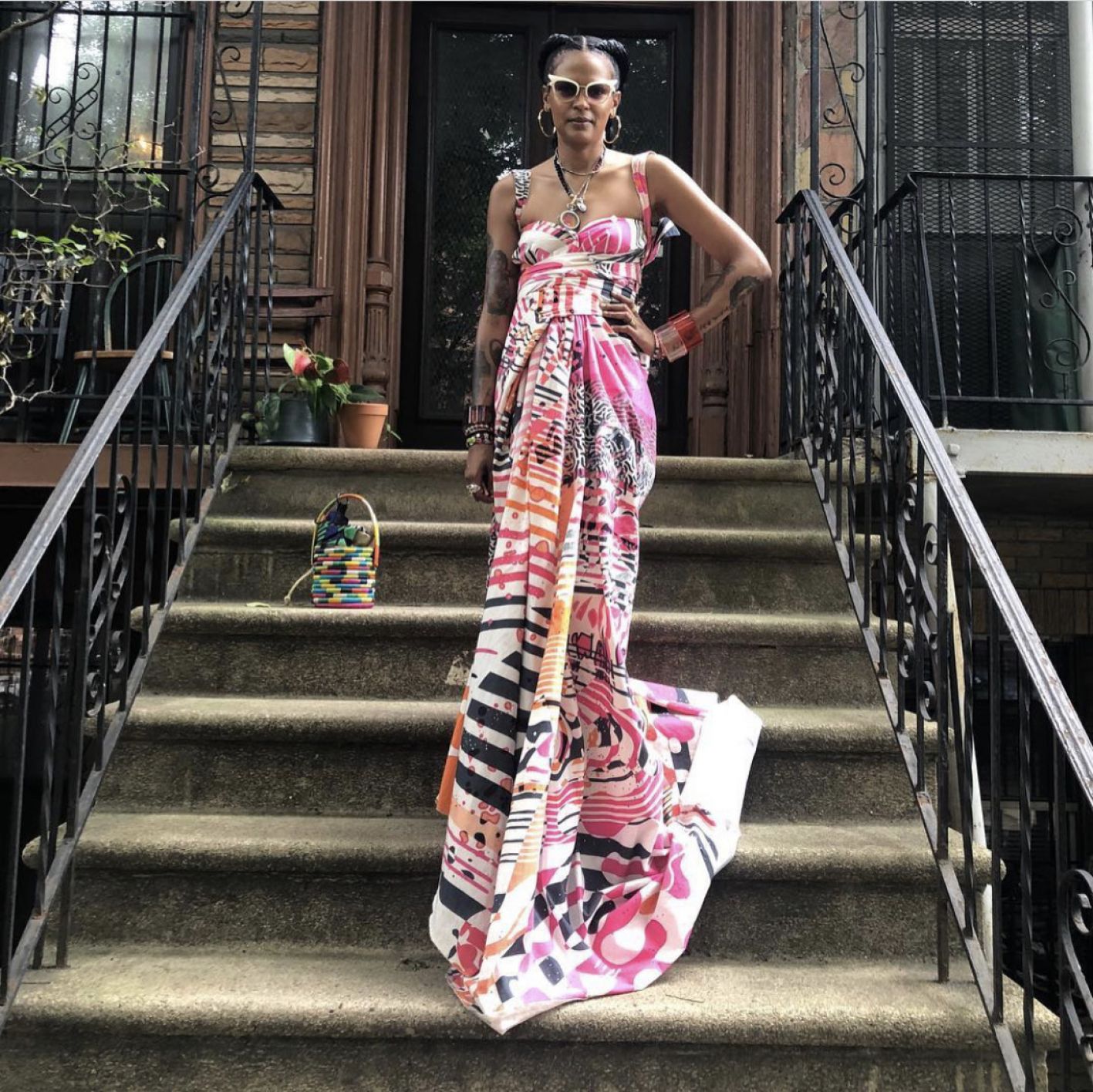
So knowing how much treatment and medication has helped you, what would you say to someone who is just embarking on this journey and scared to take that first step?
I think there’s two parts for people who are beginning their treatment process.
First, it's important to honor the fear and the shame, because I still feel that way sometimes. And like all sorts of issues in this world, when we eradicate shame, it destigmatizes and demystifies that experience.
Second, once you get past that shame, become tender enough with yourself to say that you deserve to feel better. You deserve treatment from experts who have made this their life's work. That's what was so important for me, to have someone tell me that I was worthy enough of being healed or helped. We just don't hear that enough.
I love that. I think a lot of us are so used to hating or hiding aspects of ourselves, that it feels really uncomfortable to show ourselves kindness. And unfortunately, we live in a country and world where both mental health education and treatment are incredibly inaccessible. We often have to take ourselves on that journey and be our own advocates. Our own guides, in a way.
You’ve spoken about the importance of self advocacy in the past. What does that mean to you, being your own advocate?
It means everything. I remember when I was in treatment in a facility, I had a really bad day and I went to the nurse and was like, “I need you to talk to the doctor for me. I'm not feeling good.” She was like, “Why would I talk to the doctor for you when you can talk to the doctor yourself? You need to advocate for what you need.”
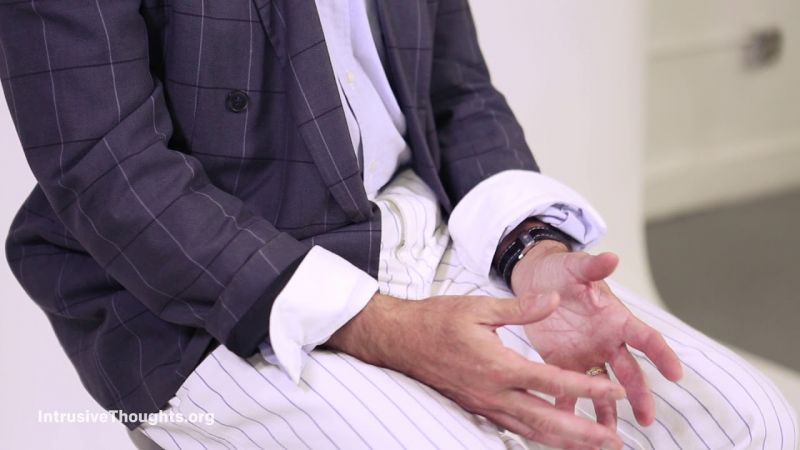
OCD3: What is Harm OCD?
Dr. Phillipson defines and discusses Harm OCD and violent thoughts.
And it set something off in me where I was like: Wait. Why am I waiting on someone else to advocate on my behalf when no one is going to know my experience better than I am? I could talk to my partner or friends or family about all the things that I'm feeling, but they are never going to be able to advocate for me the way that I can.
Being able to speak freely and ask for what I need has made all the difference with my mental health. Once you're an advocate for yourself, all those other things like finding a therapist or figuring out whether to take medication will start to make much more sense because you’re the one in charge.
I’m at a point where talking about this stuff feels like the rent I owe to exist in this world. When I was at my lowest, I looked around and there was nobody who looked or sounded like me. I knew that had there been someone, I probably would have had a different experience. Once I got to the other side of understanding my disease and how to cope, I knew it was going to be my responsibility as a Black woman to speak about it.
I think that’s a really powerful message to end on. Is there anything else you’d like to share before we wrap?
I just want to reiterate that, the more I talk about mental health, the easier it gets. Having these open conversations early relieves me of shame.
Like with family and friends. When I equip the people in my life with information about what I’m going through, or a heads up that I’m not doing well, it’s sort of like shame mitigation. It’s pre-shame. I might still feel embarrassed or down when a low point happens, but I get ahead of those feelings now.
Pre-shame. That’s amazing, I’m going to steal that. Thank you so much for talking with us, this was really wonderful.
Of course, thank you.
Keep up with Crystal on Instagram at @beerbottles_chainsaws. All collage artwork from our Shame Shouldn't Be a Symptom campaign was created by Ian Woods.
Apoya nuestro trabajo
Nuestra misión es cambiar la manera en que el mundo percibe la salud mental.



















